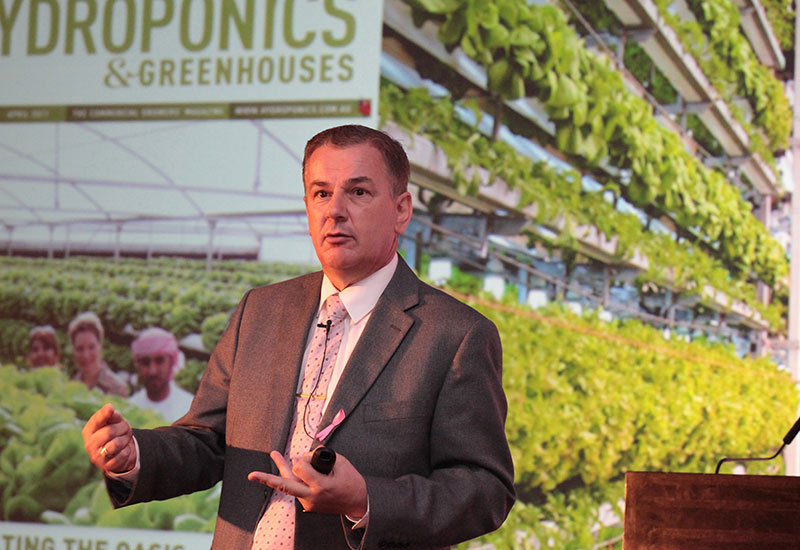Hydroponics technical and marketing director Rudi Azzato reveals more about the Abu Dhabi-based farm and its plans for the future
During a conversation with delegates at the Caterer Middle East: Chef & Ingredients Forum, Emirates Hydroponic Farms technical and marketing director Rudi Azzato answered questions and gave the F&B industry a brief about what the farm is doing.
When the company started ...
The farm was launched in 2006, and in the first few years, the market was not sure what ‘hydroponics’ was. Azzato said: “In fact, we were invited [by various people] with our delivery truck. When we opened the back door and looked at the produce, they honestly believed we had imported it from France and they wanted to know how I could bring this in so fresh. When we explained this was grown here in Abu Dhabi and Dubai, they did not believe us until we showed photographs.” Right now, the company has select clientele who, Azzato said, appreciate quality and the contribution to the local industry.

| Advertisement |
What will the food and beverage industry find at the farm ...
The Emirates Hydroponic Farm grows different varieties of lettuces along with other herbs. Azzato reported production occurs through all 12 months of the year. “Having said that we don’t grow every crop. We split it due to the infrastructure that we have.” The property is 100% Emirati-owned, he said, and the 1000m2 greenhouse is fully air-conditioned, though he admitted it comes at a high cost. He added: “Over the nine years, we’ve really fine-tuned what we believe works for certain crops.”
What factors are considered when working on the crops ...
“Each crop will have a different nutrient; we have our own formula. We buy the raw ingredients of the micro and macro nutrients, we then formulate what is best suited for that plant. Before we do this, we analyse the water,” said Azzato. If necessary, elements such as iron and potassium are removed or added to get the right mix.
Benefits of this method ...
One of the foremost advantages is saving water as this is recycled during the process. Azzato explained that it is also possible to be pesticide-free. He added: “On our farm, we do use pesticide — not in all greenhouses but in certain crops. Having said that, the amount we use is very, very small. We’re talking somewhere between 15-20% compared to traditional farming. If we do use pesticide, we use it two weeks before harvest. Most pesticides have a seven day withholding period.”
The farm also sends samples of produce to the Abu Dhabi Food Laboratory for tests, a practice it started in 2010. Azzato is proud to say that for every test returned, no traces of pesticide or E.Coli have been found in the produce.
In addition, all the seeds purchased are of very high quality from European companies, and are not genetically modified. “The seeds we buy are perhaps seven times more expensive than cheaper varieties but our success rate in germination varies from 88-98%. For us as a commercial grower, that is very important.”
What’s next ...
The Emirates Hydroponics Farm is working on a proposal from a client in the UAE for a 57,000m2 greenhouse (almost six hectares). Azzato said: “If this project were to go ahead, it will really be an eye-opener for the whole industry. It’s a glass greenhouse, six metres high. We will have shade netting outside and within the greenhouse. We have misters, we have a washing glass unit to remove the dust off the greenhouse.” Plans include growing lettuce, herbs, tomatoes and peppers.









 Search our database of more than 2,700 industry companies
Search our database of more than 2,700 industry companies









